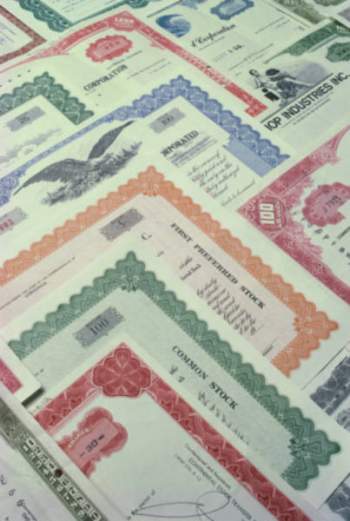
All You Need to Know About Government Bonds

Related Forms
Schedule B - Personal Property
Schedule C - Property Claimed as Exempt
Schedule D - Creditors Holding Secured Claims
Schedule E - Creditors Holding Unsecured Priority Claims
Schedule F - Creditors Holding Unsecured Nonpriority Claims
Schedule G - Executory Contracts and Unexpired Leases
Schedule I - Current Income of Individual Debtor(s)
Schedule J- Current Expenditures of Individual Debtor(s)
Summary of Schedules (Includes Statistical Summary of Certain Liabilities)
View AllWhen a country needs to obtain financial resources in order to fund important projects, it may issue government bonds. Government bonds are purchased from a government by an individual. The funds that a government receives from the purchase can be utilized as needed or desired. However, like a loan between a bank and a consumer, the government will be required to repay the lender for the loan.
Government bonds are not amortization loans, and therefore, repayment for the initial loan value will occur at the end of the loan duration. An individual that has purchased a government bond will receive interest payments from the borrower on numerous occasions throughout the length of the loan. The interest rate attached to a government bond will be fixed.
Typically, a lender will receive interest payments twice a year, though this may vary based on the conditions of the bond. However, an individual will not be compensated for the full value of the loan until the bond's specified maturation date.
Government bonds differ from foreign currency bonds because, while a foreign currency bond is issued by a government, a government bond is only issued to consumers within the country. There are similarities, however. Foreign currency bonds are issued by a government to investors throughout the world and remain in the currency of the issuing country, while a government bond issued by the United States Treasury will be purchased by citizens of the United States in the U.S dollar, and thus, also expressly in the currency of the country of origin.
Government bonds are generally considered to be the most secure type of bond that an individual can purchase, as they represent an entire country. A government bond is usually a safer investment than a municipal bond or an international bond. However, if an investor resides in a developing country that maintains an unstable government, then he/she should be wary about the possibility of a government defaulting on a government bond.
The most secure government bonds are issued by the United States, the United Kingdom, Germany, France, Japan, and Italy. Bonds from the United States, otherwise known as treasury bonds, are often perceived to be the most secure investments of them all.
Because purchasing a government bond is a fairly safe investment, the interest rate attached to these types of loans are often low. Therefore, people often choose to take part in more risky investments in order to yield a larger profit. Despite this, many investors appreciate the security that is associated with government bonds.
If an investor wishes to collect on the value of a loan before the designated maturation date, he/she may choose to sell the bond on a secondary market. The individual who purchases the bond from the original lender will then receive the remaining interest payments, along with the primary value of the loan at the date of maturation.
In the United States, a government bond may be obtained from the Department of the Treasury. In fact, bonds may be purchased online at the Department's website.



















